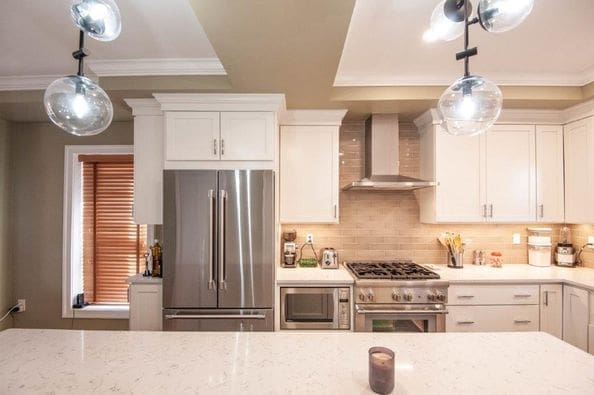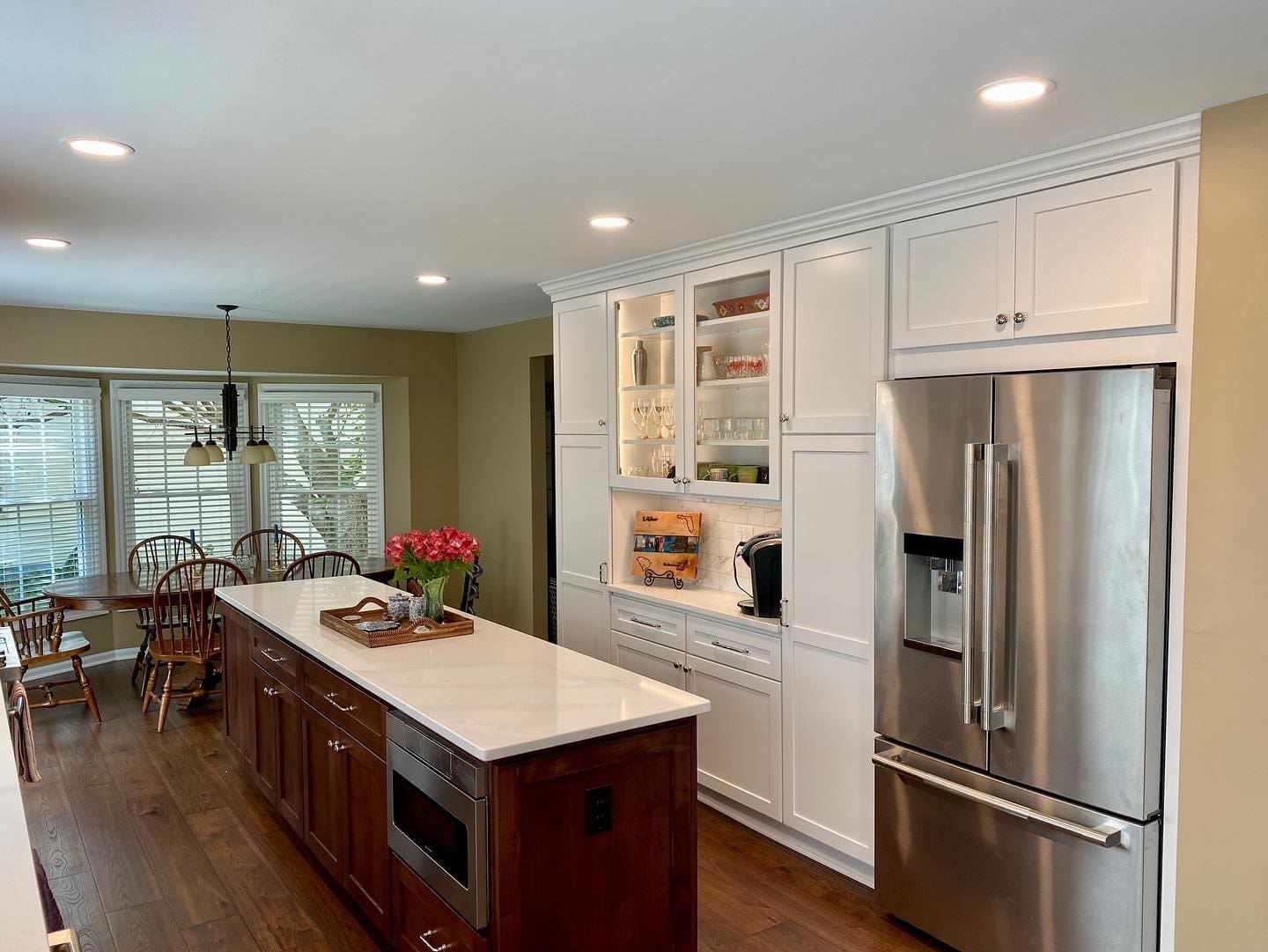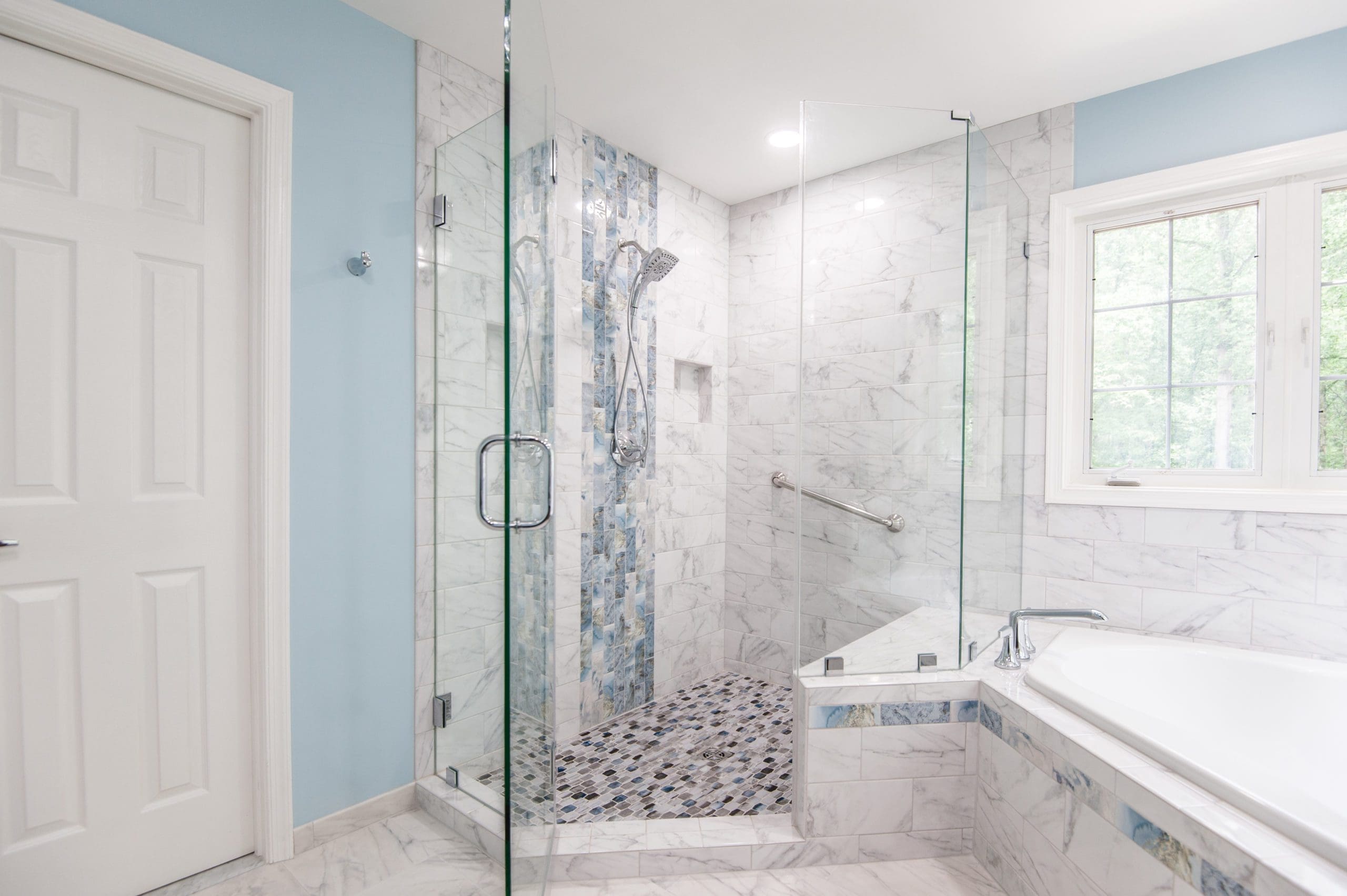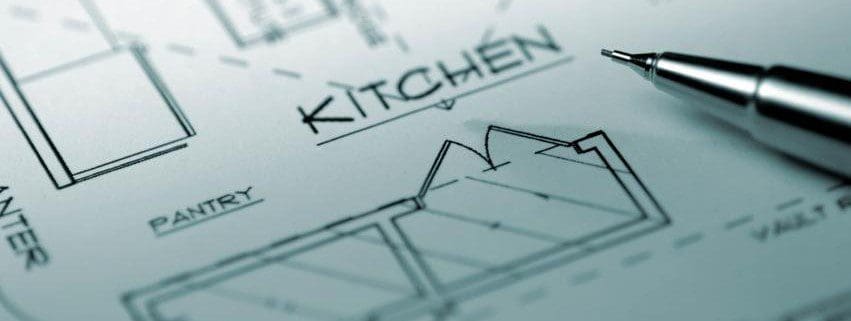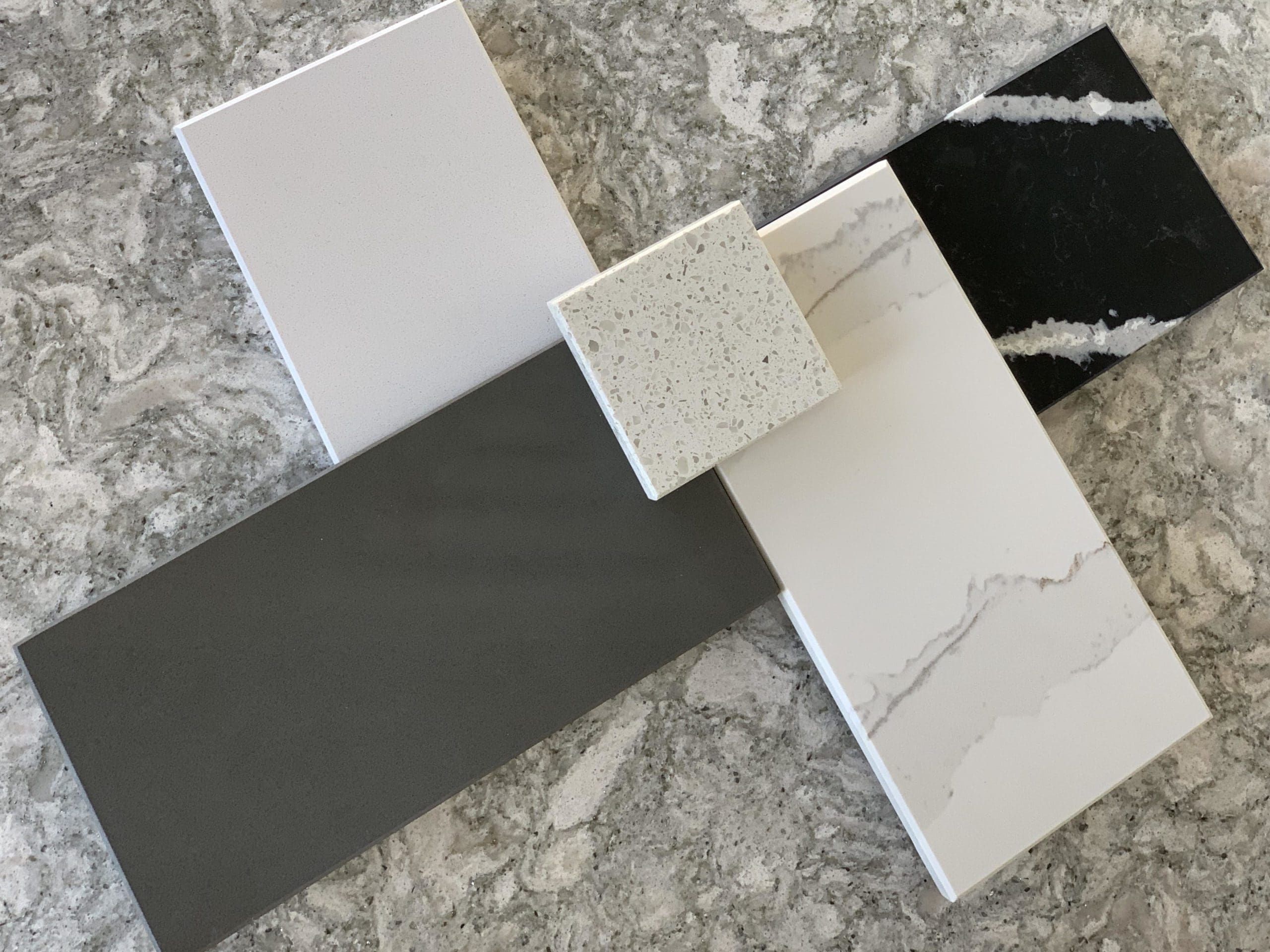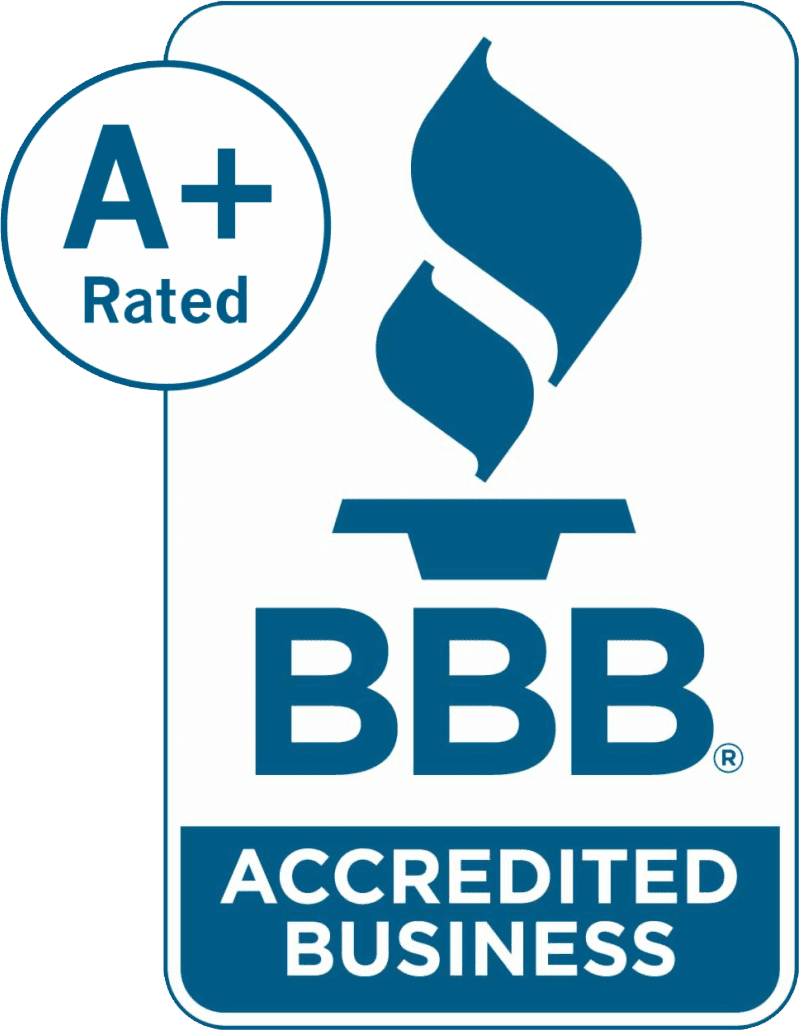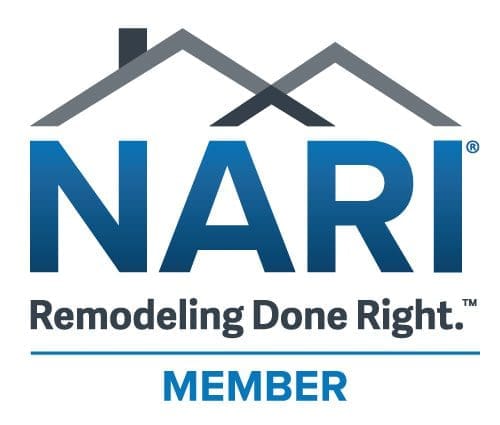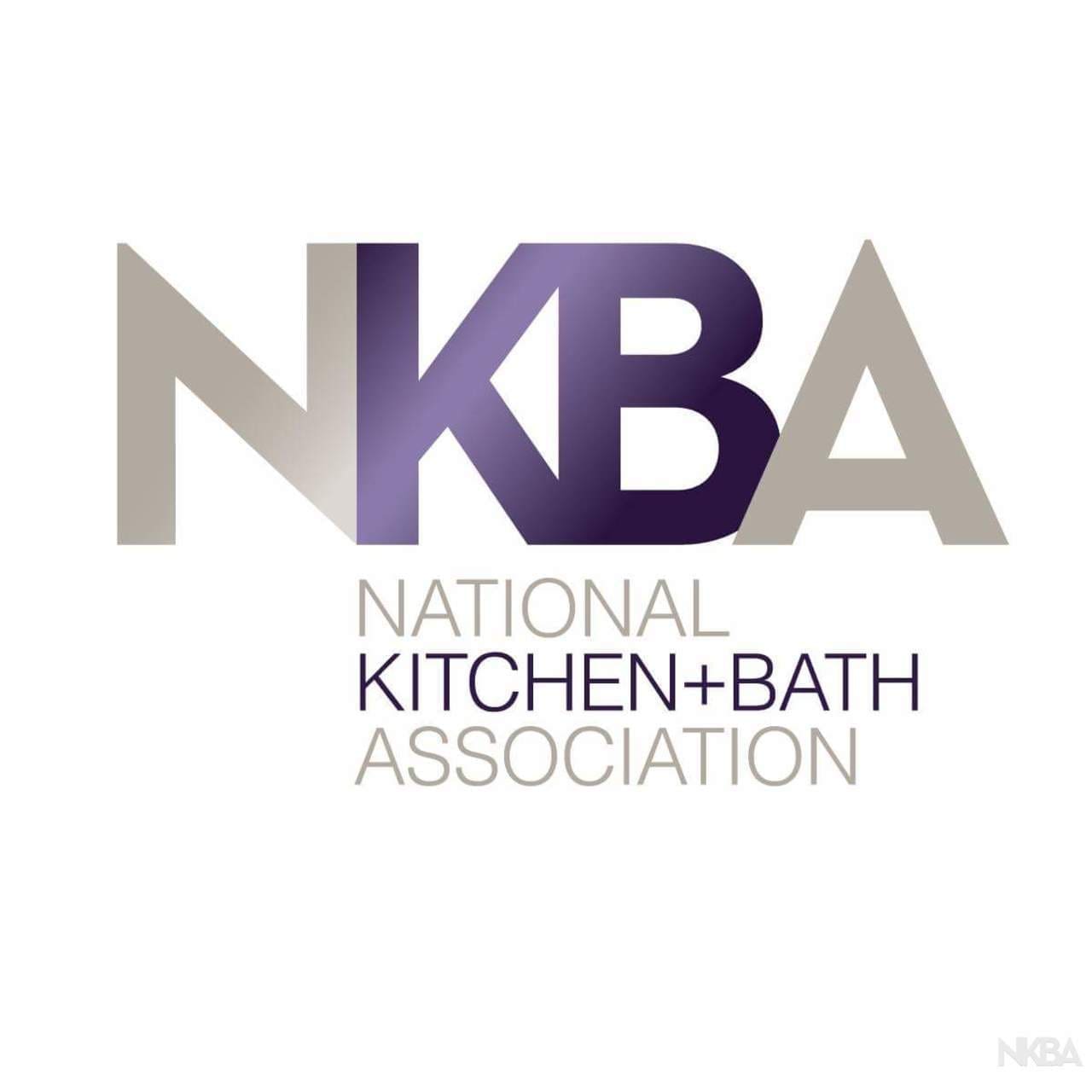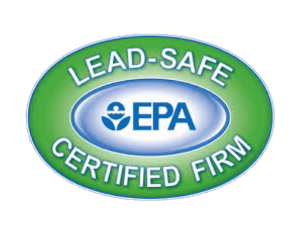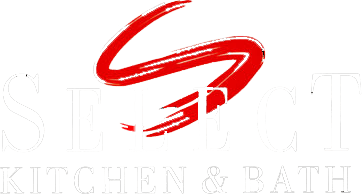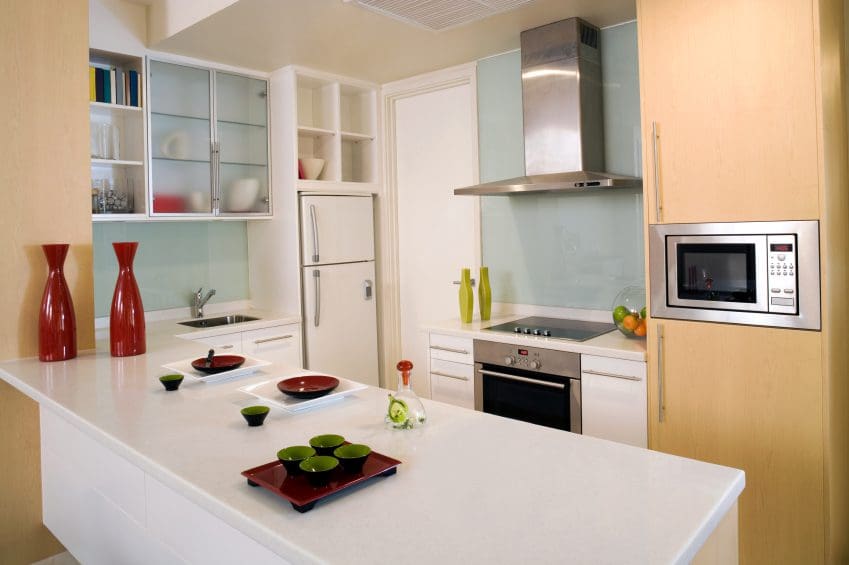 In 1967, DuPont Chemical Corporation developed the rigid polymer (plastic) composite known as Corian®. In the late 1970s, DuPont introduced this product as an upscale countertop material as an alternate to the widely popular laminate surface normally found on countertops. Since its introduction into the marketplace, Corian® has been joined by several other manufacturers’ products in establishing the formidable solid surface countertop alternative. These solid surface materials are characterized by their clean, monolithic appearance, inherent resistance to staining and etching, as well as their ability to be ‘easily’ repaired should unfortunate accidents occur to the extremely durable surface of the material. They are manufactured in sheet format and are typically available in thicknesses of 1/4”, 1/2”, and 3/4” stock, enabling these products to be used in both horizontal (countertop) and vertical (backsplash) kitchen applications. Inasmuch as they are a thru-solid surface, the exposed edges may be ‘turned’ or cut to project a customized ornate edging.
In 1967, DuPont Chemical Corporation developed the rigid polymer (plastic) composite known as Corian®. In the late 1970s, DuPont introduced this product as an upscale countertop material as an alternate to the widely popular laminate surface normally found on countertops. Since its introduction into the marketplace, Corian® has been joined by several other manufacturers’ products in establishing the formidable solid surface countertop alternative. These solid surface materials are characterized by their clean, monolithic appearance, inherent resistance to staining and etching, as well as their ability to be ‘easily’ repaired should unfortunate accidents occur to the extremely durable surface of the material. They are manufactured in sheet format and are typically available in thicknesses of 1/4”, 1/2”, and 3/4” stock, enabling these products to be used in both horizontal (countertop) and vertical (backsplash) kitchen applications. Inasmuch as they are a thru-solid surface, the exposed edges may be ‘turned’ or cut to project a customized ornate edging.
Benefits of Solid Surface vs. Other countertop materials
The benefits of solid surface countertops certainly outweigh the drawbacks associated with this option. Solid surface materials are, by natural form and design, extremely resistant to staining and etching discoloration caused by errant spills of things normally found in kitchens; and this is accomplished without periodic sealing or dressings applied to the surface. Stone countertops must be sealed, tile grout must be sealed, in order to create resilience to such agents; laminate can be stained permanently and has no preventative solution. Cutting and dicing foods on countertops is a doable practice for those with solid surface; and should ‘cut marks’ appear, these are simply sanded invisible again with fine grit sandpaper. Stone counters will dull knives and laminates will be permanently damaged by knives. Solid surface countertops are also extremely forgiving when it comes to using common household cleaners or sanitizing chemicals like bleach. Solid surface materials are not affected by these agents, but these same chemicals can wreak havoc on the luster and integrity of the sealers on stone or the factory finish of laminate materials.
Solid surface materials possess advantages with regards to aesthetics and customization of a kitchen countertop versus their counterparts. As stated before, solid surface counters are slick, monolithic surfaces that appear seamless. Stone surfaces may boast this same feature, but that is largely dependent upon the skills of the installer; and with laminate, every seam will be visible. Solid surface materials may be thermoformed, which means that a fabricator may subject the slab to an even level of heat (300 degrees F) in order to mold, contour and form the slab in order to accommodate a dramatic angle–like creating a contiguous ‘coving’ up, into the backsplash. Other countertop materials cannot be formed in such a manner. Solid surface materials also lend themselves to stylish edging options whereby, like granite and other stones, the exposed edges may be finished with an ornate, router detail. Yet, solid surface can take this edging one step further: An alternate shade of solid surface can be sandwiched (glued) between the underside of the countertop and a piece of identical stock beneath it and then turned in order to integrate a coordinating feature strip. This accent strip may also be made of wood, matching the cabinetry, for a truly attractive and customized look. You will also find that this same solid surface material is utilized in the production of under-mount, flush and top-mount kitchen sinks–rendering a highly serviceable, stylish, fresh and sanitary kitchen work area.
Raise your hand if you object!
Solid surface countertop materials do solve a host of common kitchen issues while offering a visual that is unmatched in the industry. However, solid surface is not necessarily for everyone. One of the foremost detractions for solid surface materials is the price point that they tend to land. While, on one end of the cost spectrum they’re a modest climb from the price of laminate or tile counters, the more expensive solid surface products are aligned against some granite and quartz options. There appears to be a valid justification to climb a few dollars away from laminate or tile into solid surface, but solid surface’s inherent benefits become more scrutinized when up against natural stone and quartz surfaces as these surfaces have more history in recognition as premium countertop surfaces. The other notable objection is that of a solid surface being susceptible to scorching or burning in a kitchen application. It’s true that, being a plastic, that caution has to be made to ensure that nothing over 300 degrees F make contact with this surface–it will ‘burn’ and it could melt. Minor burns, of course, can be relieved by lightly sanding the blemish; but any severe burns or ‘melting’ is a permanent imperfection that is not going away. However, approach such things with a realistic mindset and understand that any countertop material has its weaknesses; and entertain the benefits as they correspond to the normal, everyday activities in your household–as well as your budget!

